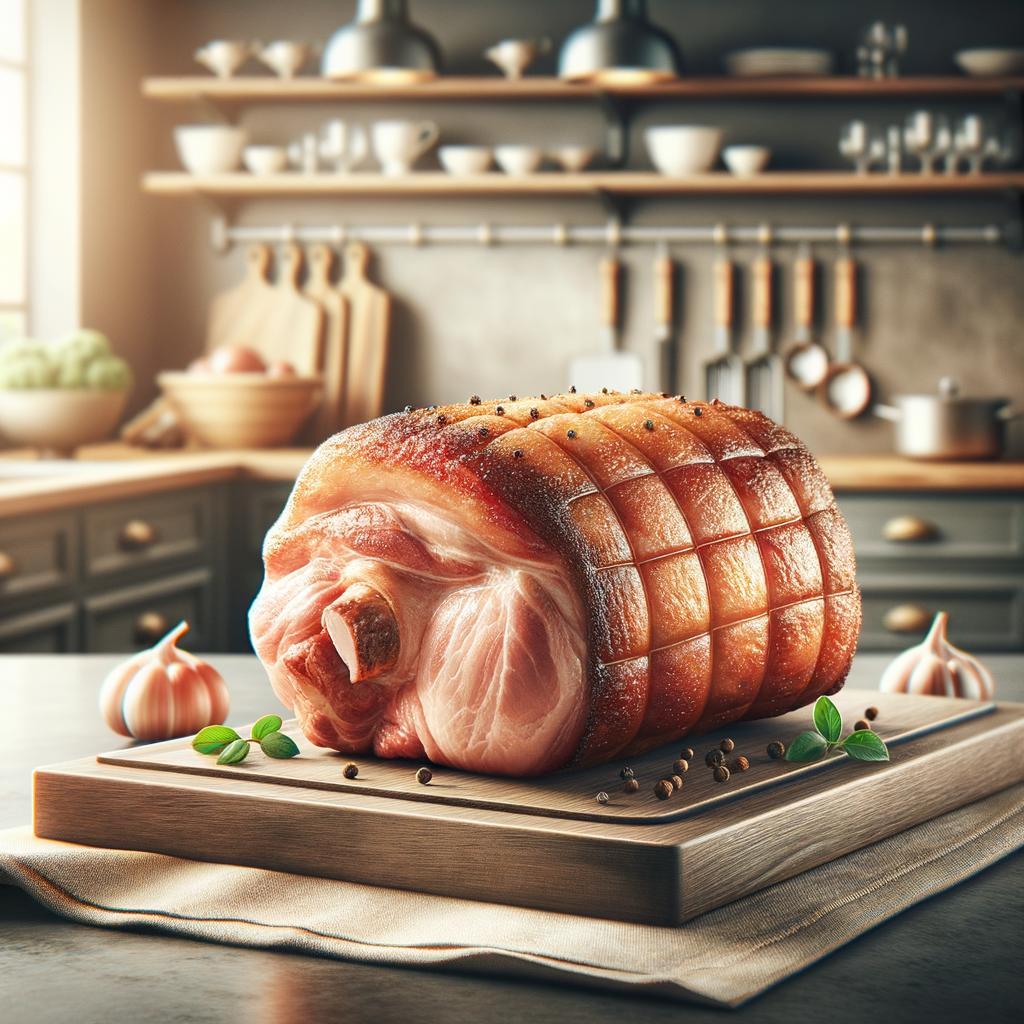Pork Shoulder Roast

Description
Pork shoulder roast, also known as Boston butt or pork butt, is a truly remarkable cut of pork. Its appearance is robust and hearty, often a hefty piece of meat marbled with a generous amount of fat. This fat, when cooked slowly, renders into the meat, giving it an exceptional succulence and richness. The texture of a properly cooked pork shoulder roast is tender and juicy, easily pulling apart with just a fork. Its flavor profile is complex, with a depth that is both savory and slightly sweet. What sets pork shoulder apart is its ability to withstand long cooking times without losing its moisture or flavor, making it the ideal cut for slow-cooked dishes.
Primary Uses
Pork shoulder roast is a versatile ingredient that shines in a variety of culinary applications. It is the star of many slow-cooked dishes such as pulled pork, stews, and roasts. It's a key component in many cuisines worldwide, from the succulent carnitas of Mexico, to the smoky barbecue pulled pork of the American South, to the hearty pork stews of Eastern Europe. Beyond its culinary uses, pork shoulder has cultural significance in many societies, often served during celebrations and holidays as a symbol of abundance and prosperity.
History
The history of pork shoulder roast is as rich and varied as its flavor. It's believed to have gained popularity in the American South, where plantation cooks would slow-roast the less desirable cuts of pork (like the shoulder) over a low fire, transforming them into a mouthwateringly tender feast. The term "Boston butt" comes from pre-revolutionary New England, where pork shoulders were packed into barrels, known as "butts", for storage and transport. Over time, the popularity of pork shoulder has only grown, with its versatility and flavor earning it a place in kitchens around the world. Folklore often associates pork with luck and prosperity, making pork shoulder roast a traditional choice for New Year's meals in many cultures.
Nutritional Information
Pork shoulder roast is not just a delight for the taste buds, but also offers a good nutritional profile. It's a rich source of protein, essential for muscle growth and repair. It also provides a substantial amount of B-vitamins, particularly B1, B6, and B12, which are vital for a healthy nervous system and energy production. The marbling fat in the roast, while high in saturated fat, also contributes to its high caloric content, which can provide sustained energy for those with high energy needs. Compared to other cuts of pork, shoulder roast has a higher fat content, but this is what gives it its unique flavor and tenderness. As with all foods, moderation is key to enjoying pork shoulder roast as part of a balanced diet.

